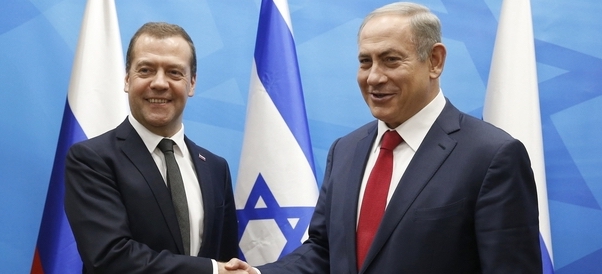Israeli Elections- Persistent Deadlock
October 3, 2019 | Expert Insights

Background
In a historical first, the Knesset voted to dissolve itself even before a government had been formed as no single party had won majority. President Rivlin was expected to appoint Benny Gantz of Blue & White Party as the new Prime Minister-designate and hence the political gambit to dissolve parliament. Fresh elections were held in September in which the Netanyahu’s right wing Likud party came in second (32 seats) to the centre left bloc of Benny Gantz’s Blue & White party (43 seats). The Arab party, Joint List (13 seats), had shown inclination to support Gantz, if only to keep Netanyahu out. But getting Arab support is not “kosher” in Israeli politics and Gantz declined thus failing to make the mandatory 61 seats
On 25 September, President Rivlin gave Netanyahu four weeks to cobble together a majority, failing which Rivlin is free to nominate another leader.
Netanyahu’s political career has been increasingly tainted with corruption charges. In 2016, during his fourth tenancy, a number of corruption investigations were opened against him and his supporters. These included allegations of gifts to him and his family, recorded conversations with newspaper barons for quid pro quo for weakening rival newspapers and advancing regulatory decisions that benefited the controlling shareholder in the Bezeq telecom giant, Shaul Elovitch, to the tune of millions of dollars, in return for positive coverage from its Walla news site.
In February 2019, Attorney General Avichai Mendelblit publicly announced to indict Netanyahu for fraud, bribery and breach of trust in three criminal cases. The first hearing was held on October 2nd in Jerusalem.
Analysis
Benjamin Netanyahu is fighting for a fifth term in office due to the corruption indictment. As per Mordechai Kremnitzer, professor of criminal law at Hebrew University in Jerusalem, he is seeking a coalition that will support his request for immunity. Netanyahu's allies support a bill which will limit the powers of the Supreme Court. As per existing provisions of the law, immunity is the exception; the proposed law will make it the rule.
Netanyahu is now advocating what may be the only path to building a majority coalition, a national unity government comprising of Blue & White and Likud. He has also secured the support of various ultra-Orthodox and national-Orthodox parties. But Gantz has pledged that Blue & White will not associate with a government led by a tainted Prime Minister.
Avigdor Lieberman of Yisrael Beiteinu party (8 seats) is the kingmaker. He has laid out his demands for his support to any unity government- mandatory military service for the ultra-orthodox and public transport and commerce on Sabbath both anathema to the ultra orthodox majority. Netanyahu’s base remains opposed to this change in Israeli culture and hence the continuing deadlock.
Assessment
- Netanyahu despite a long political career faces a grim future, in case he fails to cobble up a majority. Faced with a pre-trial hearing his only hope of immunity is getting re-elected in power. Once reinstated as the Prime Minister, there will be no legal requirement for him to resign as prime minister on indictment.
- A unity government is the way out but it is unlikely to allow Netanyahu an escape route from prosecution.
- If the country goes to a third election, it could spell the political doom of Netanyahu. Failure to form a government twice along with the corruption hearing is doing irreparable damage to the political future of the Likud party. The Likud party is most likely to abandon him to political oblivion.
- The confusion in the political landscape of Israel is a sign of an extremely polarised society. People are fixated on their narrow preferences rather than on larger issues plaguing the country.
India Watch
Netanyahu has enjoyed very good relationship with India irrespective of the party in power here. He endorsed Indian compulsions for a multi aligned policy in the Middle East and expanded the strategic relationship to greater heights. However, it is felt that Indo-Israeli relationship has matured over the years and will be unaffected by change of government in Israel.
Image Courtesy: government.ru








Comments